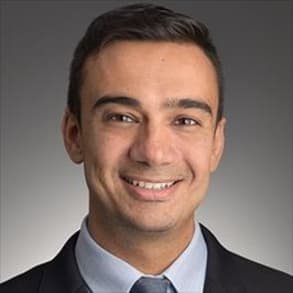Amin Yehya, M.D., relays a patient story that highlights the challenges that the LGBTQ Community often faces in healthcare and the associated health disparities. Dr. Yehya is the author of the publication “Challenges of the LGBTQ Community in Health Care: Focus on Heart Failure”, and an advocate to help better understand and correct the health disparities in this population.
Click here to read more.
I'm Doctor Armenia. I'm the director of the M. C. S. Program at Sentara Norfolk General Hospital. I'm pleased to talk to you today about our recent work at the Journal of cardiac failure. About the challenges that the L. G. B. T. Q. Community faces in the health care system. It all started actually with one of our heart transplant patients and this patient when she started rescheduling her appointment and not showing up to blood draws. It was an alarming sign for us because this patient has always been compliant. So after reach out to the patient and we convinced her to come to clinic. We sat down and we started inquiring what prompted this change. The patient shared with us that she's going through a transition in her life after her heart transplant. She continued saying that she wanted to live her truth. She want to be happy and her happiness stems now of being who she identifies with. And she shared that she is going through the transition process. As I mentioned. Um She was very tearful and scared and she said that she was worried that the healthcare system and all clinics specifically or you know because we've been following her closely that we might be treating her differently or making fun of her or denying her care. But to her surprise she was very happy with the response and we were all supportive of her and supported her journey. I mean it highlighted the challenges of the LGBTQ patients face in our community. Most patients such as our patients would have been you know scared to come and receive care because of their preconceived notion, the fear of the stigma and discrimination and that they have and you know, some studies noted that there are 25% of patients, specially transgender patients do not receive care and they're even denied care and they don't feel comfortable getting care because when they go and assume they get to be cared for, some physicians might treat them differently in a different way or make fun of them. Um this I think stems from an inherent bias that physicians can have towards this community because we assume everybody is this gender or everybody identifies with the gender that he or she has made me big more deeper and learn more about the challenges that this community faces, not just accessing care, but also this this patient populations have high risk factors for diseases such as, you know, high blood pressure, alcohol use, smoking. And unfortunately most of the researchers has been allocated and the funds have been allocated were not allocated um, in this community towards the cardiovascular disease, which remains one of the leading cause of death in this patient population that is directed towards other venues. So there is a lot of areas that we need to learn because there are no studies have been done on LGBTQ patients. Most of our data has been through case reports in observational data, but there's no studies that enrolled L. G. B. T. Q. And to look at for the risk factors for their diseases and their outcomes. In this time, there is a lot of stress and emphasis on having diversity, equity and inclusion in our healthcare system and the L. G B. T. Q community is one of the main communities that we need to highlight and work with and this can not be done without having this trust and building bridges between the community and the health care system. As Socrates has said, the secret for change is focusing our energy, not fighting the past, but building on the new our patients experience was an enlightenment and very inspirational because it helped us understand some of the challenges that LGBTQ patients face out in the community. Our role as health care providers are to try to get rid of these barriers and promote an environment that's safe and patients feel comfortable reaching out to us and receiving care because our goal should always be providing care to patients independent of their sexual orientation and gender identity
Related Presenters
